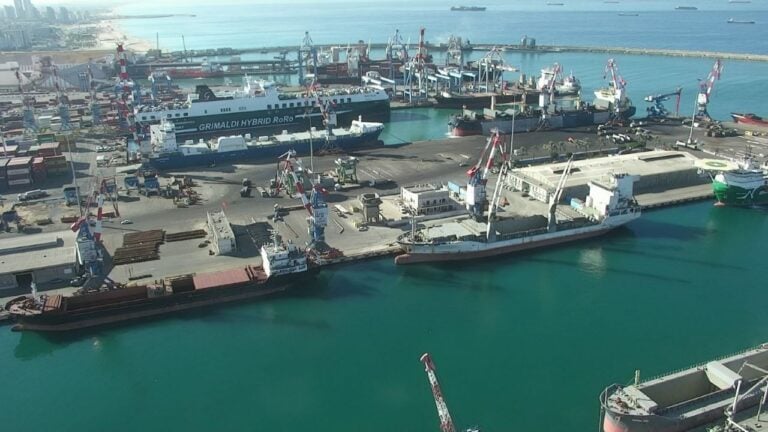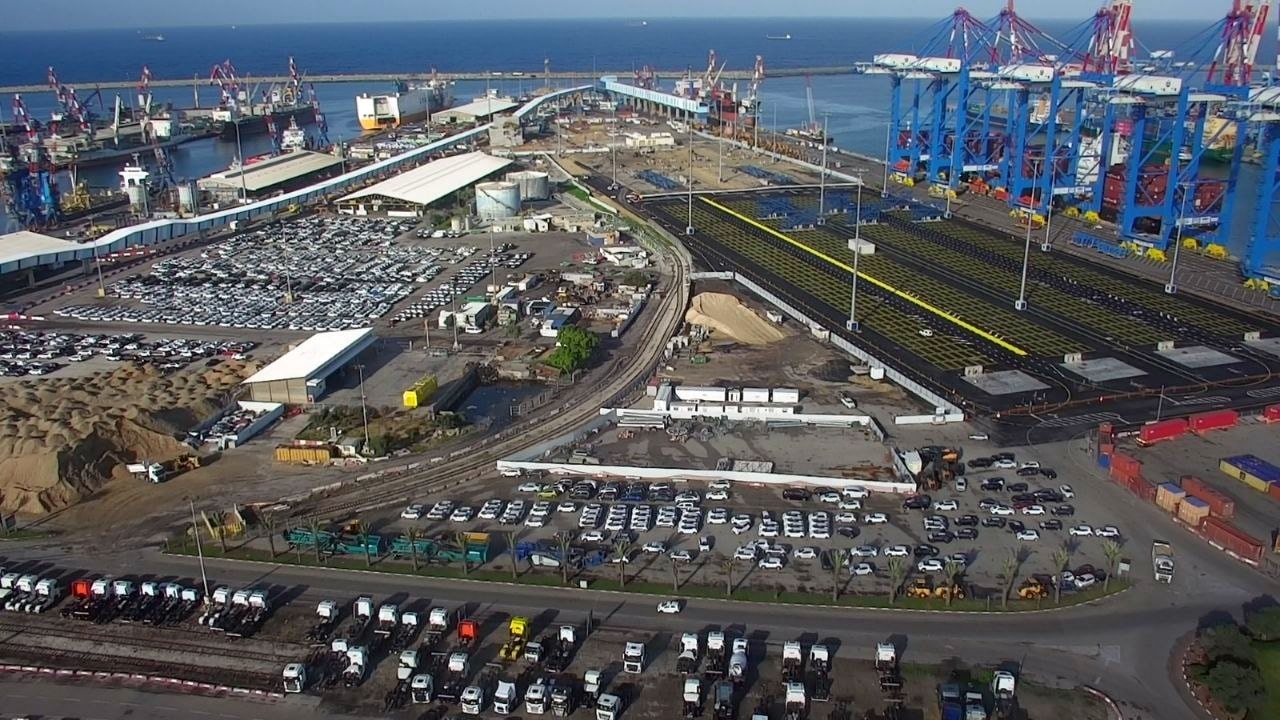The Port of Ashdod in southern Israel is the country’s largest seaport.
“Forty percent of all cargo comes [to Israel] through us,” Executive Chairman at Ashdod Port Company Shaul Schneider tells ISRAEL21c. “And 90% of all cargo comes by sea, so you can imagine the scope.”
For the past two weeks, southern Israel — along with many other parts of the country — has been under rocket bombardment from Gaza. Israel declared war on October 7 after thousands of Hamas terrorists infiltrated the communities on the border with the Gaza Strip, indiscriminately killing over 1,400 people, most of them civilians.
Ashdod is only 20 kilometers (12.4 miles) from the Gaza Strip and has been struck by missiles during the war.
Yet the security situation not only failed to stun the operations of the port, but actually spurred further activity.
Of Israel’s six commercial ports, Ashdod Port is the only one that is state-owned. “The port has to continue operating under any circumstance; we are the oxygen supply tube of the country right now,” notes Schneider.

“We have an emergency operations mode, which we activated the moment we heard about what happened.”
The emergency mode entails operating the port 24/7, unloading goods that are vital for the battlefield, as well as the Israeli market in general.
“The shifts are longer, because we prefer the employees who come to work stay as long as possible in order to avoid the unneeded rotation of people.”
Schneider adds, however, that personal protection of the employees is maintained at all times.
“They have protective gear, mobile bomb shelters that are scattered [around the port] and all the dangerous materials [such as coal and sulfur] are stored in protective containers.”
Any employees who are not considered essential have been allowed to work remotely for the duration of the war, primarily to avoid getting hurt by rocket fire during their commute.
“Me and other senior staff are all at the port to show the employees that they are not alone and we are together in this campaign,” says Schneider.
Uninterrupted
Schneider adds that occasionally cargo ships headed for Ashdod opt to dock and unload in northern Israel, but mostly the work continues uninterrupted.

“The scope of supply has not changed,” he says.
Schneider explains that all foreign cargo coming to Israel is insured. Due to security concerns, insurance companies have significantly raised their premiums.
“The Finance Ministry immediately got involved and bridged the gaps in our insurance payments, so the shipping industry here wouldn’t feel the damage.”
He relates that another advantage the port has over the others in the country is its older workforce. “The average age of the personnel in other ports is younger, so a lot of manpower there was called up for reserves, creating a shortage,” he says.
“Our employees are older, so not many were called up, only around 12%.”
And if the port does sustain a severe hit that would disrupt its operations, Schneider says they have contingency plans for that scenario as well.
“There is a potential for damage,” he admits. “We have dangerous material here, there are 70-meter cranes unloading the cargo, so during rocket alert sirens the operators can’t make it down on time.
“But we are a strategic body, we are protected. We believe and trust the military not to allow something like this to happen.”
Civil courage
Schneider admits the job at the port is not the easiest, especially during a war.
“Everyone here is demonstrating civil courage. Working under fire, leaving the children and partners behind, commuting to Ashdod — it takes heroism to do it,” he says, adding some of the staff lives close to the Gaza border and had to leave their homes.
“They are heroes, there is no other word. We are on the frontlines, enlisted for the greater good of the country.”














